Open-Source Tools Every Health Startup Should Know: From Hustle to Healing
A witty, down-to-earth guide to open-source tools every African health startup needs to survive, thrive, and avoid going broke before your first patient walks through the digital door. Learn how to build, collaborate, and innovate on a budget using powerful free tools that speak your startup's language.

"Even the best cooking pot will not produce food." — African proverb
If you’ve ever tried to start a healthtech company in Africa, then you know the truth: ideas are cheap, execution is expensive, and your bank account is allergic to monthly SaaS subscriptions. One minute you're pitching your mHealth app, the next you’re explaining to investors why you spent $49.99 on a fancy email tool instead of paying your developer.
But worry not, young innovator. This blog is your unofficial guide to building a revolutionary health startup with the magic of open-source tools — the kind that cost you exactly zero dollars and still get the job done. Because in this economy, "you can't fight a lion with bare hands" — but you can with free software.
1. Odoo – Business Management Done Right
Let’s face it: many of us are running our health startups out of small rooms with unreliable WiFi and backup power from the neighbour's extension cord. But with Odoo, you can manage your operations, billing, inventory, and even patient CRM like a Fortune 500 company — for free.
Odoo’s community edition is open-source, and you can host it yourself (yes, YouTube is your friend). Whether you’re running a telemedicine service in Accra or a diagnostic lab in Nairobi, Odoo makes your backend look like you’re ready for IPO.
Pro Tip: Pair it with PgAdmin to manage your PostgreSQL database like a techie with a PhD from MIT.
2. DHIS2 – Data for Days
Health data is like ugali or fufu — if you can’t manage it properly, it becomes a sticky mess. Enter DHIS2, the open-source health management information system developed by the University of Oslo and used in over 70 countries (yes, including Kenya, Uganda, and South Africa).
You can track diseases, monitor health facilities, and generate real-time analytics to impress donors and confuse your competitors.
Anecdote: A health NGO in Northern Nigeria once scaled its malaria tracking program using DHIS2 after spending months trying to build a spreadsheet system from scratch. Today, they use real-time dashboards to plan interventions — and save lives.
3. Jitsi Meet – Zoom, but Make It African-Friendly
You want to hold a virtual consultation, but your patient has 3G internet and your startup can’t afford Zoom Pro. Use Jitsi Meet, the open-source video conferencing tool that doesn’t need logins, payments, or your soul.
It works on low bandwidth, has end-to-end encryption, and your auntie in Eldoret or uncle in Tamale can join without needing a degree in computer science.
4. LibreHealth – For Clinics with Dreams
LibreHealth is like that cousin who went to medical school abroad and came back with fresh ideas. It offers open-source EHR (electronic health record) solutions for clinics, hospitals, and health programmes.
You can customise it for maternal health, HIV care, or whatever your startup is passionate about — from Cairo to Cape Town.
Fun Fact: LibreHealth is a fork of OpenMRS, which is already used in several African countries including Rwanda and Kenya. So yes, it’s tested and trusted.
5. OpenBoxes – For Inventory Without Insanity
Are your medical supplies missing? Do syringes disappear like politicians after elections? Try OpenBoxes, a powerful supply chain management system designed for low-resource health systems.
Built by and for humanitarian supply chains, it helps you track stock levels, expiration dates, and shipments — even if your warehouse is a shipping container behind a clinic in Soweto.
6. GitHub – Not Just for Developers
Open-source doesn’t work without collaboration. GitHub lets you store, version, and collaborate on your code (or documents, designs, and diagrams).
Yes, it’s mostly used by developers, but don’t be afraid to poke around. Many African health tech projects are already hosted there — from mobile malaria apps to machine-learning for diagnostics.
"Wisdom is like a baobab tree; no one individual can embrace it." — So collaborate, don’t isolate.
7. Nextcloud – Your Cloud, Your Rules
Need a HIPAA-compliant, secure, cloud storage alternative to Google Drive? Nextcloud is your digital house-help. Store files, share documents, manage calendars, and even do team chat — all under your control.
It’s like having your own personal cloud fortress, without paying rent in dollars.
Final Word: No Excuses, Only Innovations
If you’re a health startup in Africa and you’re not using open-source tools, you’re likely burning through your savings like a boda-boda running on premium fuel.
Open-source isn’t just about saving money. It’s about building sustainable, adaptable solutions that understand your local context. When tools are free and communities are global, your startup has no excuse to say “we couldn’t build it.”
Because as we say in Kenya: "Haba na haba hujaza kibaba" — Little by little, the pot gets full.
So fill your pot. Innovate wisely. And may your startup rise like the morning sun over the Nile.
References
DHIS2. (2024). Data for decision-making. https://www.dhis2.org/
GitHub. (2024). Where the world builds software. https://github.com/
Jitsi. (2024). Free secure video conferencing. https://meet.jit.si/
LibreHealth. (2024). Open-source health IT for everyone. https://librehealth.io/
Nextcloud. (2024). The self-hosted productivity platform. https://nextcloud.com/
Odoo. (2024). Open Source ERP and CRM. https://www.odoo.com/
OpenBoxes. (2024). Open-source supply chain management. https://openboxes.com/
PgAdmin. (2024). PostgreSQL tools. https://www.pgadmin.org/
What's Your Reaction?
 Like
0
Like
0
 Dislike
0
Dislike
0
 Love
0
Love
0
 Funny
0
Funny
0
 Angry
0
Angry
0
 Sad
0
Sad
0
 Wow
0
Wow
0













































































